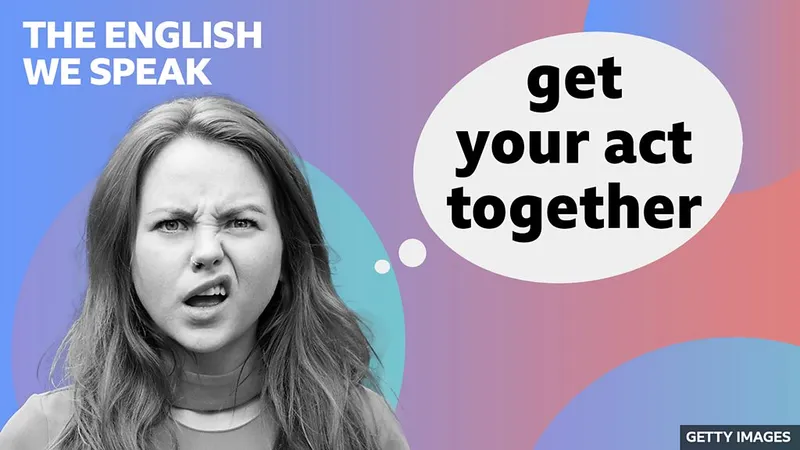Feifei Hello and welcome to The English We Speak, I’m Feifei…
Rob …and hello, I’m Rob.
Feifei Rob, you’re looking a bit stressed.
Rob I am! I’ve so much work to do. I’m still trying to catch up on yesterday’s work.
Feifei Oh dear! Does that explain why you look so scruffy?
Rob Probably – I haven’t had time to iron my shirt – and when I was trying to find something on my desk, I knocked coffee all over me.
Feifei I think you need to get your act together.
Rob This has nothing to do with acting – this is for real!
Feifei I’m not talking about acting, I’m talking about organisation. When we say someone should ‘get their act together’, it means they should organise their life in a more effective way so they are more efficient and productive. So, Rob, I’m saying sort your life out if you want to achieve more. Here are some more examples of this phrase…
Examples If you want to graduate with a good degree, you’ll have to get your act together.
The team needs to get its act together if it wants to stay in the tournament.
The business needs to get its act together if it wants to recruit the best talent.
Feifei This is The English We Speak from BBC Learning English. I’m telling Rob to ‘get his act together’, which means organise his life in a more effective way.
Rob OK, Feifei, tell me how I can get my act together.
Feifei Well, look at this. I have created a rota, showing every task you need to do in a different colour.
Rob Amazing!
Feifei And it tells you when to do it and for how long – so now you’ll never feel overwhelmed by your workload again.
Rob Thanks very much – but hold on, what’s this task that’s coloured yellow?
Feifei That’s ironing, Rob. You’ve got to find time to iron a shirt!
Rob Good thinking. And this task, coloured brown?
Feifei Ah, that’s coffee time. Do you want one now?
Rob Good idea – I’ll do the rest of my tasks later.
Feifei No, Rob – get your act together and I’ll get the coffee! Bye.
Rob Bye.
